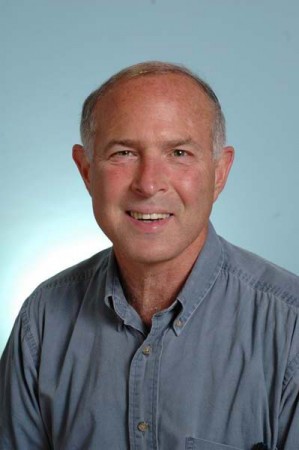Roads Taken & Not Taken - Jack Rakove '68

credit: John Sheretz
Details
Published
From Haverford College history major to Pulitzer Prize
Sometimes I think I am the steadiest-state, straight-line person I know, and am no longer surprised when acquaintances convey the same impression. I entered Haverford in September 1964 knowing I would major in history, but not yet sure whether I'd turn out a professor (like my father) or a lawyer. Having the chance to work with Wallace MacCaffery, the dominant intellectual presence on campus, and the young Roger Lane, then a year or two out of grad school, was all I needed to take the academic option. Their support, I am sure, was also instrumental (and more) in helping me get into Harvard, where I fell under the tutelage of Wallace's good friend, Bernard Bailyn, the distinguished early Americanist who had just won a Pulitzer Prize for his seminal work on The Ideological Origins of the American Revolution.
That was the unexpected part of my professional arc. Historians have to pick a country and a period, and I was sure mine would be the 20th century. But Bailyn was the most stimulating historian around, and as I grew familiar with his work and the period he taught, I realized that the general questions I wanted to pursue were better asked of the Revolutionary era than later epochs. I picked a very old-fashioned topic, the Continental Congress, which first met not too many miles from the College, and learned in the process that topics that seem well-settled may be ripe for reconsideration simply because they are too easy to take for granted.
That dissertation helped me find my first job, at Colgate, and when it appeared as a book four years later, the timing was just right to help me move on to the position I've held ever since at Stanford. That was unexpected, too. The 1970s job market was rough, and I was lucky to land both.
So there I was, a Californian, just tenured, with a second project to start. I had an idea, which had germinated in part through my membership in Reservists Against the War (that war!), about developing a historically sound model of how to think intelligently about the“original meaning” of the Constitution. All I originally intended to do was write a long article working out my ideas, and then move on to something else. But the original article of 1984 evolved into a book that took much longer to write than planned, but which, when published, had the good fortune to win a few prizes, including the one I had not known Bailyn had earned when I began studying with him. And because questions about originalism remain all the rage in our constitutional jurisprudence, the choice I made back in the mid-1960s unexpectedly proved a false one. I now teach in law schools occasionally, publish frequently in law reviews, and probably have a keener audience among legal scholars than my historian colleagues. That, too, was unexpected, but I have relished it all the same.
Jack Rakove is William Robertson Coe Professor of History and American Studies and Professor of Political Science and Law at Stanford University. He won the Pulitzer Prize for history in 1997.
That was the unexpected part of my professional arc. Historians have to pick a country and a period, and I was sure mine would be the 20th century. But Bailyn was the most stimulating historian around, and as I grew familiar with his work and the period he taught, I realized that the general questions I wanted to pursue were better asked of the Revolutionary era than later epochs. I picked a very old-fashioned topic, the Continental Congress, which first met not too many miles from the College, and learned in the process that topics that seem well-settled may be ripe for reconsideration simply because they are too easy to take for granted.
That dissertation helped me find my first job, at Colgate, and when it appeared as a book four years later, the timing was just right to help me move on to the position I've held ever since at Stanford. That was unexpected, too. The 1970s job market was rough, and I was lucky to land both.
So there I was, a Californian, just tenured, with a second project to start. I had an idea, which had germinated in part through my membership in Reservists Against the War (that war!), about developing a historically sound model of how to think intelligently about the“original meaning” of the Constitution. All I originally intended to do was write a long article working out my ideas, and then move on to something else. But the original article of 1984 evolved into a book that took much longer to write than planned, but which, when published, had the good fortune to win a few prizes, including the one I had not known Bailyn had earned when I began studying with him. And because questions about originalism remain all the rage in our constitutional jurisprudence, the choice I made back in the mid-1960s unexpectedly proved a false one. I now teach in law schools occasionally, publish frequently in law reviews, and probably have a keener audience among legal scholars than my historian colleagues. That, too, was unexpected, but I have relished it all the same.
Jack Rakove is William Robertson Coe Professor of History and American Studies and Professor of Political Science and Law at Stanford University. He won the Pulitzer Prize for history in 1997.



